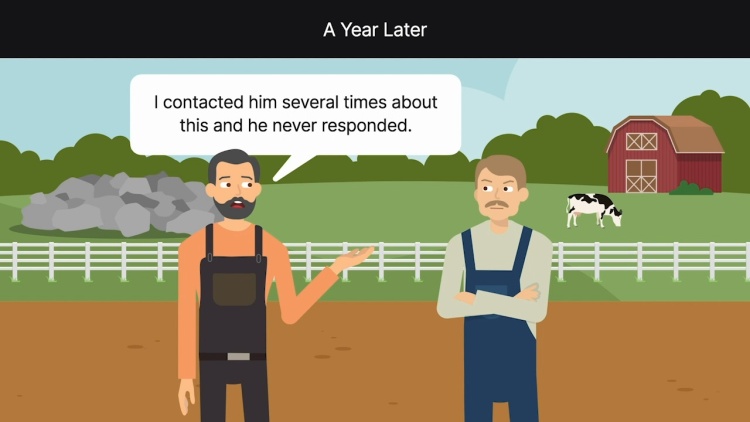Johnson v. Penny
South Dakota Supreme Court
779 N.W. 2d 412 (2010)

- Written by Josh Lee, JD
Facts
Robert Larson (defendant), a farmer, contracted with Michael Johnson (plaintiff) for Johnson to remove rock from Larson’s land in exchange for Johnson receiving the value of the extracted rock. Larson and Johnson subsequently contracted for Johnson to install drain tile in part of Larson’s land, again in exchange for the value of the extracted rock. Johnson removed the rock and installed the drain tile as required by the contracts, extracting 1,100 tons of rock. Johnson only removed between three and five truckloads of the extracted rock. The remainder of the rock was stored on Larson’s land with his permission. All of this occurred in March and April 2005. In August 2006, Larson gave Joel Penny (defendant) permission to remove the rock for free after not having heard from Johnson about the rock despite inquiring about the stockpiles of rock several times and leaving his phone number with Johnson’s bookkeeper. In October 2006, Johnson sent Larson invoices along with a letter reminding Larson of their contract. After not receiving a response, Johnson brought suit against Larson and Penny. The trial court held a hearing on equitable claims and entered a judgment of unjust enrichment against Larson and Penny. The trial court also awarded Johnson the remedy of quantum meruit, or the cost of the benefit. Larson and Penny appealed.
Rule of Law
Issue
Holding and Reasoning (Konenkamp, J.)
What to do next…
Here's why 911,000 law students have relied on our case briefs:
- Written by law professors and practitioners, not other law students. 47,100 briefs, keyed to 997 casebooks. Top-notch customer support.
- The right amount of information, includes the facts, issues, rule of law, holding and reasoning, and any concurrences and dissents.
- Access in your classes, works on your mobile and tablet. Massive library of related video lessons and high quality multiple-choice questions.
- Easy to use, uniform format for every case brief. Written in plain English, not in legalese. Our briefs summarize and simplify; they don’t just repeat the court’s language.





